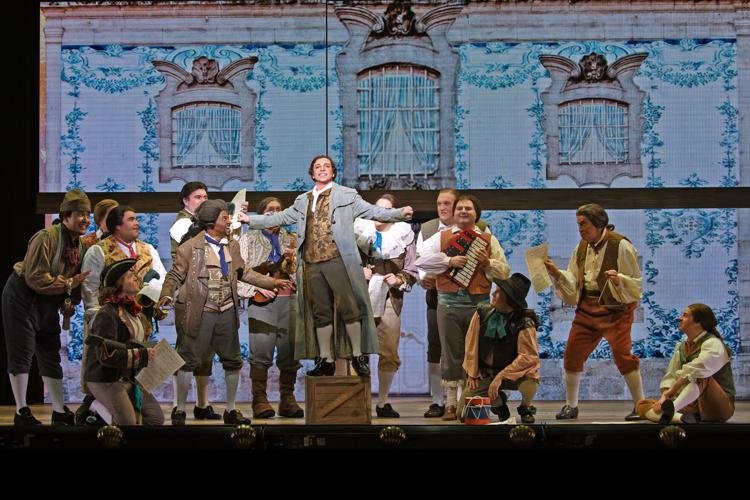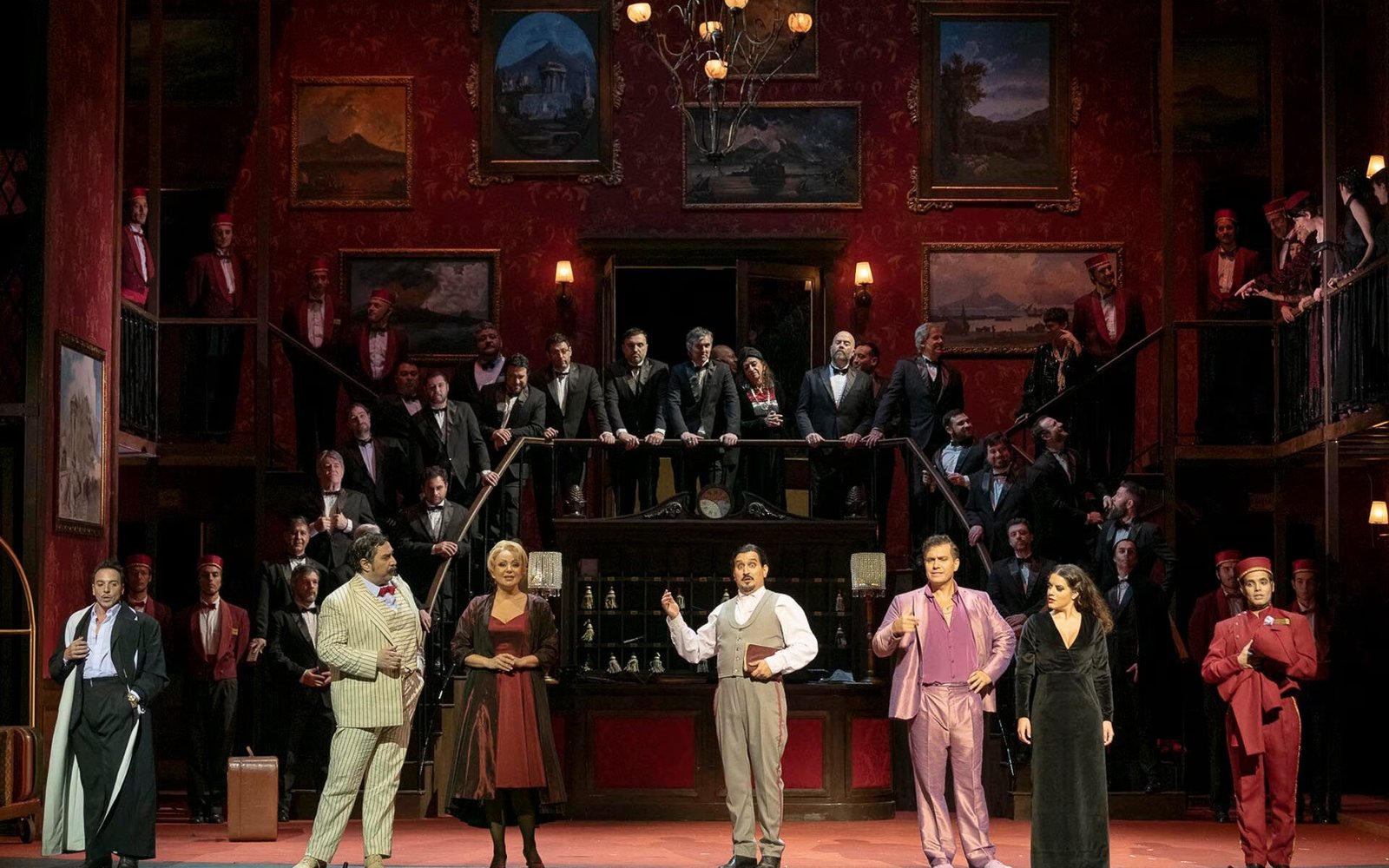“S’il faut une révélation à la soirée, elle a pour nom Santiago Ballerini, qui interprète Argirio : un métal que n’entache aucune nasalité – talon d’Achille du ténor rossinien ; une émission haute et souple ; une technique servie par une intelligence du chant qui lui permet de surmonter à sa manière les passages les plus périlleux ; une maîtrise du style avec l’usage de demi-teintes et d’effets bienvenus – ah ! la messa di voce qui introduit « Pensa che sei mia figlia » (en ligne sur YouTube) – un tempérament enfin, une fougue qu’il doit apprendre à contenir pour tenir la distance et éviter que la cabalette de son dernier air – le magnifique « Ah ! segnar invano io tento » – et le duo suivant n’en payent les conséquences.”
“Une autre bonne surprise est le ténor argentin Santiago Ballerini, qui se taille également un beau succès personnel dans le rôle d’Argirio (le père d’Amenaïde). Il se révèle en effet étourdissant dès son air d’entrée, insolent dans la colorature, notamment dans son grand air “Ah ! Segnar invano io tento”, hérissé de contre-Ut et contre-Ré, tandis que l’acteur se montre aussi particulièrement investi.”
“L’Argirio di Santiago Ballerini ha la straordinarietà di giocare sui trapezi del belcanto senza risparmiarsi. Questo tenore argentino ha compiuto, come padre di Amenaide, un percorso da vero atleta del respiro.
Che grande tecnica, anche quando gli accenti e le note sovracute non concedevano un solo istante di pausa. Sentirlo nell’interpretazione “Pensa che sei mia figlia” o nel duetto con Tancredi/Iervolino “Ah, se de’ mali mie” è una vera e propria goduria. Nell’aspetto attoriale ricorda l’immenso Mario Del Monaco: postura, gesto, sguardo mai vinto anche quando sofferente giunge alla prigione della figlia. In quella della vocalità ricorda il piglio ed il fraseggio di Raúl Giménez. Un fraseggio molto interessante quello di Ballerini, l’italiano giunge perfetto clamorosa la sua “messa di voce”, da vero maestro.”





